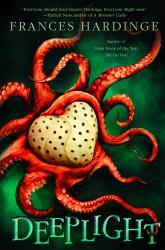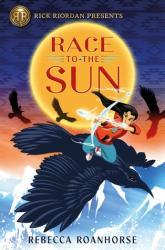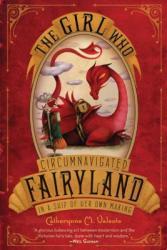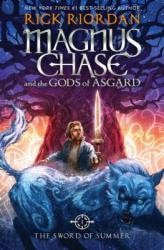
Hark is an orphan who forms a bond of brotherhood with Jelt, a fellow orphan. So when Jelt asks Hark for help executing a job for a local gang, Hark reluctantly agrees. And gets caught, natch. He ends up as an indentured servant of a scientist studying the leftover pieces dead sea-monster gods that ruled the island until they all fought each other to death 30 years prior. Hark talks to the former priests who worked with the gods and is largely enjoying himself, until Jelt shows up with a new job that threatens Hark's new life.
There is obviously a lot going on in this book, and the worldbuilding was next level creative. Each sea-monster/god is different, and the descriptions of them were fantastic and a bit creepy. The mysteries of their existence and sudden disappearance unravel throughout the course of the book. That's kind of half of the book, and the other half is the adventures of Hark (they are, of course, intertwined), which I didn't love as much due to his blind devotion to Jelt. But even still, Hark's story goes down a very interesting and unexpected path and I think a lot of young teenage boys will identify with him. The book's message ends up being about your story/legacy and storytelling, which resonated with me as it will with anyone who understands the power and value of good storytelling.
This is a perfect read for tweens and teens graduating from middle grade fiction to YA who love adventure with a touch of horror. If this book finds it's audience, I can see it being really popular. I really enjoyed it! 4 stars.
Thanks to Netgalley and MacMillan for the eARC, which I received in exchange for an unbiased review. Deeplight is available now - put your copy on hold today!

Nizhoni Begay is a normal seventh grader in many respects, minus the thing where she can see monsters. One day, she gets home from school to see a monster in her kitchen masquerading as her dad's potential boss. Sure enough, the boss-monster kidnaps her dad, and Nizhoni, her brother Max and their best friend Davery take off on a race to the House of the Sun to find weapons they can use to defeat the boss-monster and save Nizhoni's dad.
I really liked this one! All of Rick Riordan's books and the books on his imprint have something of a sameness to them, but that's not necessarily a bad thing (I'd compare it to the Marvel Cinematic Universe). You know you're going to get a snarky teenager narrating an epic quest to save the world where they'll be attacked non-stop by monsters from some sort of mythology. That's what you get here, but its the Navajo edition. I liked it a lot - I think it helps when the mythology being referenced originated more or less in your backyard, and as a Coloradan, it was a lot of fun to read. Plus, the mythology itself is just cool; Black Jet Girl, Spider Woman, and Crystal Rock Boy were particularly fun.
For readers who like mythology, action, adventure and snarky main characters. I really enjoyed this one, and will add this series to the list of books I listen to while I run! 4 stars - I really liked it.
Thanks to Disney-Hyperion and Netgalley for the eARC, which I received in exchanged for an unbiased review. Race to the Sun will be released on 14 January, but you can put your copy on hold today!

I've yet to read something by Catherynne M. Valente that isn't absolutely gorgeous -- admittedly I may be a little bit biased, as I definitely think folkloric stories are the best, and folkloric stories with lovely playful twists are the BEST best... But when it comes to evocative and clever prose, as far as I'm concerned Valente is on a level all her own. At the moment, I happen to be reading her "Fairyland" series, and so... Behold, the first book -- "The Girl who Circumnavigated Fairyland in a Ship of her Own Making!" It's just as whimsical as it sounds.
So there's this little girl named September, living in a lonely house and washing a bunch of lonely teacups all the time and feeling very trapped. A quirky and talkative Green Wind -- apparently a defiant and spirited sort of wind -- riding a leopard shows up to spirit her away to Fairyland if she likes. This book is very much like "Alice's Adventures in Wonderland" for the modern age: September has loads more authority over herself and her destiny, for one, and she grows dramatically as a human being over the course of the series. Fairyland helps that along of course, despite being a wild and alien place, complete with folkloric and/or mythological figures both eternal and re-imagined, petulant tyrants with very impressive hats, and interesting twists and turns aplenty that I can say I definitely didn't see coming. Valente's world is simultaneously familiar and wonderfully fresh, like she's composed words to go along to the tune of a well-beloved song, shifting its meaning in unexpected ways while still keeping true to the soul of something timeless.

Oh my goodness, Apollo, you strange and beautiful basket case. I was laughing all through this book, marking pages to shove at my friends... You know the drill. The Greek-mythology-centric Percy Jackson series as a whole helped me through some dark times when I was younger, and this first book of Rick Riordan's new "Trials of Apollo" series is delightful, just as I remember "The Lightning Thief" to have been back when I really, really needed it. (It's only missing Mr. D -- I've always especially liked Mr. D. Maybe he'll show up in the next one?)
Anyway. You know how in Greek folklore, Apollo gets stripped of his powers sometimes when he gets his king/dad, Zeus, angry? That's happened again in this series, only now it's all happening in modern day New York... Where the rules to everything are way different than what Apollo's used to... Annnnd he's not used to acne or helplessness, either, both of which he has to deal with as an awkward teen apparently named "Lester." It's the sparkly god of the sun/music/so many things's turn to go on actual quests again instead of waving demigods off on them... And he's very, very sad about it.
Some familiar faces from the Percy Jackson series have appeared so far in "The Hidden Oracle," but I would say it's definitely its own series with unique sources of pathos. Something I always loved about the Percy Jackson books is their empathy, the way people can redeem themselves, the way characters can still be heroic despite/because of their flaws... And that is STILL HERE, operating now through the protagonist, given the centuries worth of mistakes a now-human Apollo has to grapple with. I definitely liked "Magnus Chase and the Gods of Asgard: The Sword of Summer" -- the Riordan book that came out a bit before this one -- but it didn't click with me in nearly the same way as Apollo's shenanigans. "The Hidden Oracle" felt like a fresh and self-aware remix of old ideas and settings from Percy Jackson, all told through a recently fallen god's wonderful, WONDERFUL narration. Yes, if you want something completely different than Percy Jackson this might not be the best place to look. But if you want to see the Percy Jackson universe through refreshingly new and oh-so-Olympus-y eyes, this may be perfect for you!
To sort of sum things up: I think this is a great kids' book, engaging and fast-paced and written with a light and goofy sense of humor, just like those original Percy Jackson books. (Sometimes the humor does get VERY goofy, so go in warned, but other times it's clever and tongue-in-cheek. Funny guy, that Apollo. Versatile.) Beyond that, though, I...a grown adult...am 100% buying the next book for myself just as soon as it comes out. I know that doesn't necessarily mean EVERY mythology-loving adult equipped with a suitably goofy sense of humor would also enjoy this book, but I know for a fact plenty of others have the same plan.

Popular mythology author Rick Riordan strikes again! He has series delving into Greek, Roman, Egyptian, and now NORSE mythology. This series follows Magnus Chase, son of a Norse god. Which god, you ask? Read the book and find out!
Riordan’s writing style is very distinct, playing to his youthful audience. The chapter titles were humorous and made no sense until I reached those parts of the book. (I read through them initially and thought, “What the…?!”)
Magnus Chase was vaguely--well, maybe more like strongly--reminiscent of Percy Jackson for me. Although Magnus has had a much rougher life so far, his voice is very similar to that of Percy. Magnus Chase is barely 16 years old, but he has been living on the streets for the past 2 years since his mother’s death. After an...interesting encounter with a fire giant, he finds himself gracing the halls of Valhalla with other Norse warriors killed in battle. Along with his valkyrie, a dwarf, and an elf, he goes on a quest to retrieve the Sword of Summer and stop the wolf Fenrir from escaping his bindings.
A interesting read for those die-hard Riordan fans or anyone who loves mythology interpretations. I was very entertained by the story, as I always am with Riordan’s mythologies, but despite the gods changing, the stories are starting to run together. The overlap of stories definitely doesn’t help the blurring of the lines. (Oh, hi Annabeth!) Crossing over from the Percy Jackson series, Annabeth, last name Chase--I guess we could have seen this one coming--has a couple nice little cameos in this book, foreshadowing a larger role later in the series. I’ll be interested to see where this goes.


